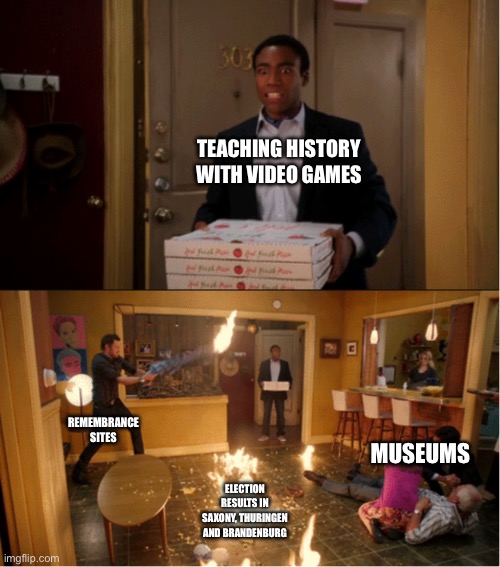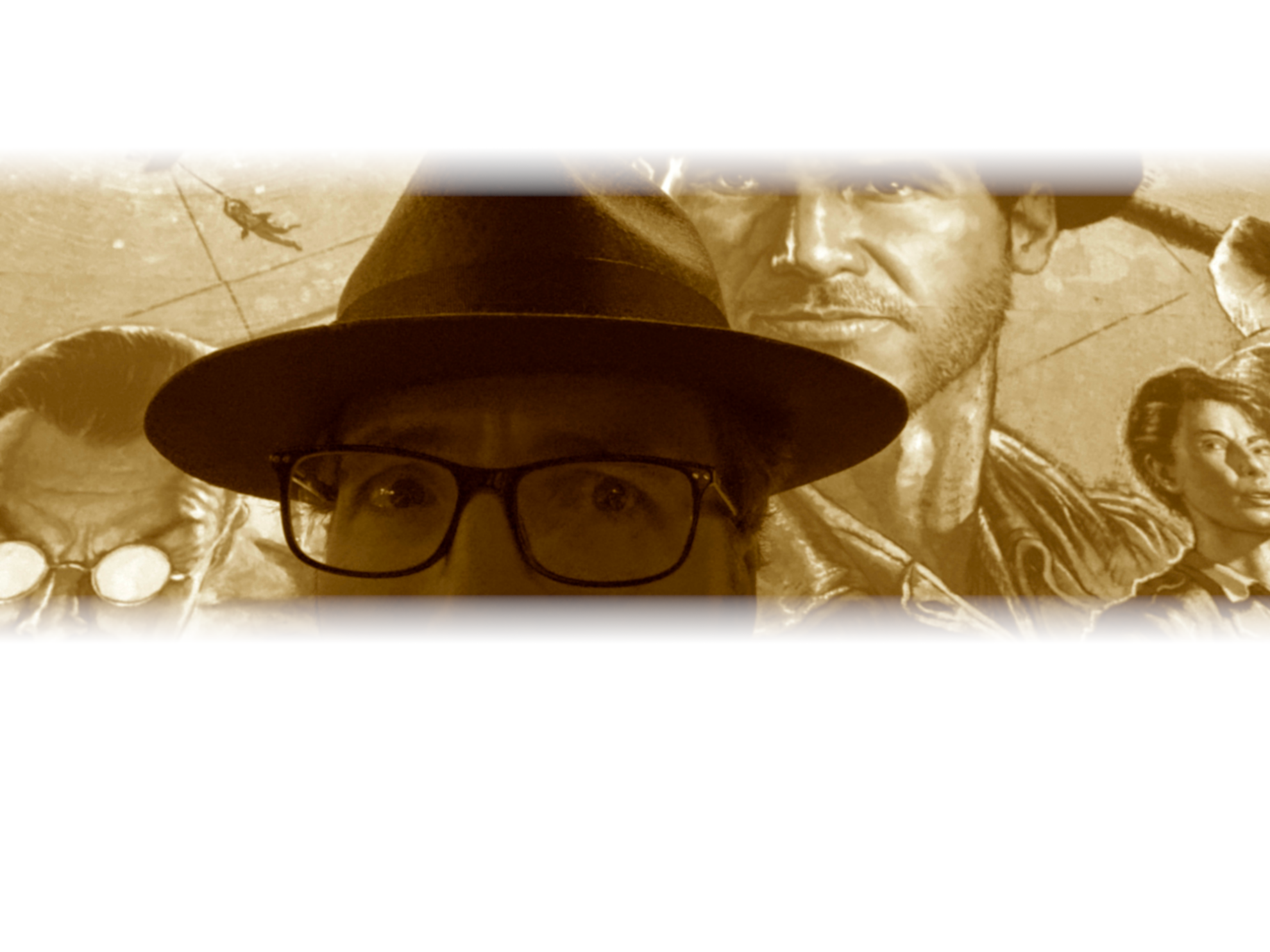The internal resistance to social media has become surprisingly strong in recent years and I still can’t fully understand my own reluctance. The medium massages the message, as you learn from McLuhan. Nevertheless, it doesn’t help to become cynical and fall silent. I may have deleted Facebook and X at the beginning of the year, but LinkedIn, Bluesky and Mastodon have been put in place for some time. So this is now an attempt at an opener for hopefully more regular updates.
Let’s Remember!
After almost five years, my time at the Foundation for Digital Games Culture came to an end this August at gamescom 2024 (see featured image). I can look back on many exciting, innovative and often challenging projects that I was able to support or lead. In particular, dealing with the digital culture of remembrance of Nazi injustice was an enriching and formative experience that I would like to build on in the future. On the project page of »Let’s Remember! Erinnerungskultur mit Games for Ort« (German only), you can find all the results of my last project.
eCommemoration Convention 2024
At the invitation of the Körber Foundation, I was a guest at this year’s eCommemoration Convention. Although I didn’t play an active part, it was great to be back after a short break to discuss the potential and limits of digital remembrance culture and to get to know interesting people and projects. One highlight was the Museum of Austerity, which uses mixed reality to document the severe consequences of British austerity policies in the 2010s on people with physical and mental impairments. As part of a meme workshop, I also critically reflected on my own work and the political situation – please don’t take it too seriously, but feel free to use it:

Freelancer-Admin
Since my homepage had to do without an update for a long time, I’ve updated a few things here, both cosmetically and technically. It’s still WIP, but at least there are new professional photos, an overdue cookie banner and an updated MySQL database. In addition, two languages are now firmly integrated into the site and I’m also trying to translate more into English. You can change the language at the top in the menu. I have also created a playlist on YouTube with all my scattered appearances.
Visibility campaign
In order to become a bit more visible as a freelancer again, I have been busy doing interviews and talks. Dr. Dr. Rudolf Inderst made the start for TITEL kulturmagazin (German only):
RTI: Wie wird es nun weitergehen?
CH: Zunächst mit einer kleinen Ruhe- und Reflexionspause. Bei „Let’s Remember!“ habe ich viele neue Eindrücke gewonnen, die erstmal verarbeitet werden wollen. Wir haben alle über die Schrecken der NS-Vergangenheit in der Schule gelernt, aber im direkten Austausch mit Expert*innen an den Orten der Erinnerung hat sich mein Bewusstsein über die deutsche Tätergesellschaft und die Verdrängungsprozesse in der Nachkriegszeit, die sich im Grunde genommen bis heute fortsetzen, noch einmal grundlegend erweitert. Das heißt auch, ich möchte unbedingt am Thema dranbleiben und Games weiterhin als verantwortungsbewussten Beitrag zu einer digitalen Erinnerungskultur begleiten, insbesondere im Lichte aktueller politischer Entwicklungen. Ich kann nur noch nicht genau sagen, wo und wie das passieren wird.
And just published is a cozy talk with Dom Schott for OK COOL (German only):
Christian Huberts gehört zu den wenigen Menschen der Spielewelt, denen es gelungen ist, sich selbst einen sprechenden Spitznamen zu geben, der sich tatsächlich auch durchgesetzt hat: Schon seit Jahren steht auf seinen Visitenkarten der Zusatz „mächtiger Kulturwissenschaftler“ – gleichermaßen eine Anspielung auf einen Adventure-Klassiker, wie auch auf seine universitäre Ausbildung. Denn Christian Huberts ist studierter Kulturwissenschaftler, der mit seiner Arbeit ganz unterschiedliche Fachdisziplinen zusammenbringt.
Diese Fähigkeiten führten ihn an den Schreibtisch der Stiftung Digitale Spielkultur, von wo aus er zahlreiche Konferenzen, Tagungen und Live-Events rund um unser aller Lieblingsmedium organisierte. Jetzt, zum Zeitpunkt dieses Gesprächs mit Dom Schott, ist dieses Kapitel ganz frisch geendet. Gemeinsam mit seinem Gastgeber blick Christian Huberts in die Zukunft, erinnert sich aber auch daran, wie schwierig und fordernd sein Weg in der Vergangenheit durchaus war.
That’s it for now. Stay tuned!
